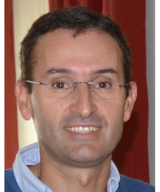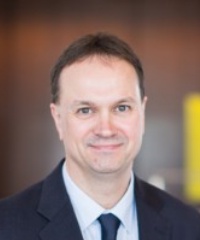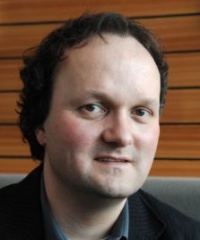QoE: from Academia to Industry, where are we ?
While Quality of Experience (QoE) has become a very sexy term, used in almost any circumstance, the real truth seems to be that, for many, QoE is simply the same as the now far from sexy Quality of Service (QoS) term used in the past.
With members from both academia and industry, this panel will try to answer questions like:
- Is QoE really being adopted by industry or is it mostly an academic diversion ?
- What is the real, practical meaning of QoE for industry ? And what about QoS ?
- What is really different now from the past when companies speak about QoE and have mostly dropped the QoS term ?
- Is QoE as an expression of a user's personal and individual experience too challenging to be adopted in practice ?
- How far will we be able to go in practice in assessing all QoE dimensions if we broadly adopt the QUALINET White Paper QoE definition ?
Moderator
Ian Burnett is currently Dean of the Faculty of Engineering and IT at the University of Technology Sydney (UTS). Ian started his career with GEC-Marconi in the UK working on satellite modem technology before completing a PhD on Hybrid Speech Coding Techniques in 1992. Following a further period in industry working on signal processing products, he moved to Australia, joining the University of Wollongong initially. During this period he worked extensively with Motorola on collaborative grants and projects in the areas of Speech coding and Audio signal processing. From 2003-2007, Ian was Australian Head of Delegation at the ISO/IEC standardisation group MPEG, where he also chaired the Multimedia Description Schemes subgroup. He continues to be actively involved in ISO/IEC SC29, the host committee for the MPEG and JPEG families of standards. One outcome of Ian’s MPEG activities was the formation of a start-up company which attracted significant venture funding in 2006/7. Ian is an active researcher in the Audio and Multimedia Signal Processing space, previously being involved with European colleagues through the COST network, Qualinet, and is currently a member of the editorial board of IEEE Multimedia. He has more than 180 publications, as well as US patents and international standards contributions.
Panelists
Sebastian Möller studied electrical engineering at the universities of Bochum (Germany), Orléans (France) and Bologna (Italy). From 1994 to 2005, he held the position of a scientific researcher at the Institute of Communication Acoustics (IKA), Ruhr-University Bochum, and worked on speech signal processing, speech technology, communication acoustics, as well as on speech communication quality aspects. Since June 2005, he works at Telekom Innovation Laboratories, TU Berlin. He was appointed Professor at TU Berlin for the subject "Quality and Usability" in April 2007, and heads the "Quality and Usability Lab" at Telekom Innovation Laboratories.
He received a Doctor-of-Engineering degree at Ruhr-University Bochum in 1999 for his work on the assessment and prediction of speech quality in telecommunications. He gained the qualification needed to be a professor at Ruhr-University Bochum in 2004, with a book on the quality of telephone-based spoken dialogue systems. He worked as visiting scientist and professor at IDIAP in Martigny (Switzerland), the University of Western Sydney (Australia), the Universidad de Granada (Spain), Ben Gurion University of the Negev in Be'er Sheva (Israel), and NTNU in Trondheim (Norway). He is currently Adjunct Professor at the University of Canberra (Australia). Since 1997, he has taken part in the standardisation activities of the ITU-T, where he is currently acting as a Rapporteur for question Q.8/12.

Anna Ukhanova
Google Switzerland
Anna Ukhanova is a Technical Program Manager for YouTube in Google, based in Zurich, Switzerland. In her job, Anna is driving technical projects across multiple YouTube areas, working with cross-functional teams on a range of topics, from creator to monetization to core infrastructure and product development in YouTube.
Anna received the M.Sc. degree cum laude from the Saint Petersburg State University of Aerospace Instrumentation, Russia, in 2008. Afterwards she received the Ph.D. degree from the Technical University of Denmark (DTU) in 2012, with the thesis “Resource-constrained low-complexity video coding for wireless transmission”. During her Ph.D. she was a guest student at the University of Padua, Italy.
In 2012 she got a personal grant from the Danish National Advanced Technology Foundation to continue her research work in the field of video communications. She was currently working on the industrial postdoc project “Optimizing video quality for future video surveillance” performed in collaboration between DTU and Milestone Systems, the world's leading development company for IP video management software. In 2013-2014 she completed business education in AVT Business School in Copenhagen.
She is author or co-author of more than 20 papers published in major international conferences and journals. She is a Member of the IEEE and IEEE Signal Processing Society. Her research interests include image and video processing, video transmission and quality assessment.
She loves cooking, dancing and mountain skiing and is happy to share those passions with other people!
Christian Timmerer is an Associate Professor at Alpen-Adria-Universität Klagenfurt, Austria and his research focus is on immersive multimedia communication, streaming, adaptation, and quality of experience. He has more than 150 publications in that area and was the general chair of WIAMIS 2008, QoMEX 2013, and ACM MMSys 2016. Additionally, he is an editorial board member of IEEE Computer, associate editor for IEEE Transactions on Multimedia and IEEE Computer Science Computing Now, area editor for the Elsevier journal on Signal Processing: Image Communication, and the Director of the Review Board of the IEEE Multimedia Communication Technical Committee. He participated in several EC-funded projects, notably DANAE, ENTHRONE, P2P-Next, ALICANTE, SocialSensor, and the COST Action IC1003 QUALINET. Dr. Timmerer also participated in ISO/MPEG work for several years – notably, in the area of MPEG-21, MPEG-M, MPEG-V, and MPEG-DASH. He is a co-founder of bitmovin and CIO | Head of Research and Standardization. Follow him on http://www.twitter.com/timse7 and subscribe to his blog http://blog.timmerer.com.

José Pascoal
NOS
José Pascoal is head of Core Network Platforms and Services at NOS since October 2013. The company is the result of the merger between ZON, the leading cable operator in Portugal and Optimus, the third mobile operator. Mr. Pascoal joined ZON in the end of 2007 where he held different director positions. Prior to ZON he has also held management positions in other companies in the mobile and cable space in Portugal.
He has a wide experience in telecom both in mobile and fixed operations. He has a vast experienced in Strategic network planning and development. Network roll outs in order to support traffic demand and new services launch. He has participated in triple play and now quad play launches. More recently José Pascoal has been leading the launch of none linear TV services, Over the Top (OTT) and converged fixed and mobile offers. Mr. Pascoal has also a relevant experience in Data Center operations and network maintenance.
Mr. Pascoal holds a Telecommunications Engineering degree from the Technical University of Lisbon and a MSc. in RF Communications from The Bradford University in the U.K. In 2012 he has successfully completed an Advance Management Program from the Kellogg School of Management.
In March 2013 José Pascoal was awarded the Cable Europe Fellow Award in recognition of his individual dedication, talent, consistent excellence and contributions to the cable industry. This award recognizes the dedication and contribution of an individual to the European cable industry.



